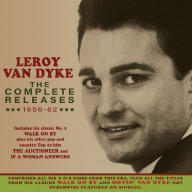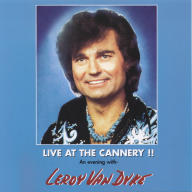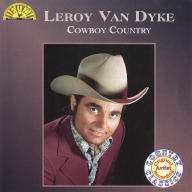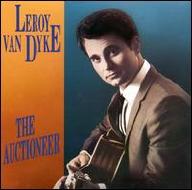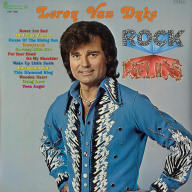Following military service, Van Dyke returned to journalism in Chicago but kept up his performing career, appearing on Red Foley's Ozark Jubilee television show. In 1956, he entered a talent contest on Chicago radio station WGN, performing "The Auctioneer." DJ Buddy Black signed up as Van Dyke's manager and slipped in a document giving himself co-writing credits and half the royalties for the song. Released as a single on the Dot label, the song hit the pop charts in late 1956 and appeared on the country charts in early 1957, where it climbed to the Top Ten. In 1961, Van Dyke went to Nashville and signed with Mercury. One of his early releases on the label was "Walk on By," which went right to the top of the country charts and remained there for 19 weeks; it also crossed over to the Top Five on the pop charts. Van Dyke contributed his distinctive smooth tenor to what became one of country music's quintessential cheating songs, a fast two-step number with a certain sly veneer of sophistication.
"Walk on By," which gained a Grammy nomination for Van Dyke, was followed up with another major crossover hit, "If a Woman Answers (Hang Up the Phone)," and the Top 40 "Black Cloud." In 1962, Van Dyke began appearing on the Grand Ole Opry. His next few Mercury releases gained only middling success, and in 1965 he signed to Warner Bros and had Top 40 success with "Roses from a Stranger." In 1967, Van Dyke appeared in the film What Am I Bid? He recorded throughout the decade but hit the charts only with "Louisville" in 1968. Nevertheless, he remained a strong draw in Las Vegas (where he was among the first country performers to package and deliver his own self-contained show) and other upscale concert locales; as a performer Van Dyke mastered the art of combining a rural persona with a countrypolitan sheen; he offered what he called "city-style country music" on the album The Leroy Van Dyke Show. In 1977, he notched one final minor hit, "Texas Tea." Later that year he also released two albums, Gospel Greats and Rock Relics, both produced by old friend Shelby Singleton. He performed often in Branson, Missouri, after that town emerged as a country music tourist Mecca, and he continued to appear at the agricultural trade shows and livestock auctions, where his music had sprung. He continued to perform at fairs, festivals, livestock events, rodeos, supper clubs, conventions, agricultural shows, and private functions well into his late eighties, and oversaw the reissue of his '50s sides compiled as Cowboy Country on Sun Records in 2018. ~ Sandra Brennan & James Manheim, Rovi


